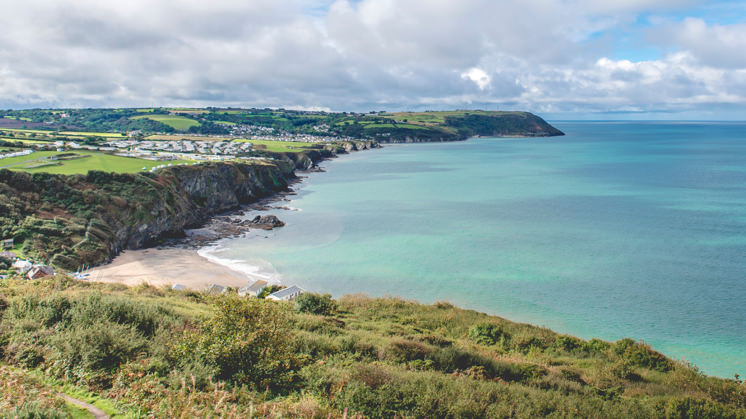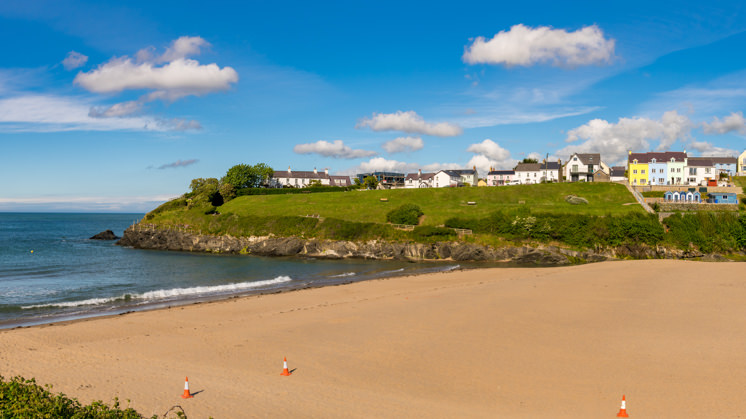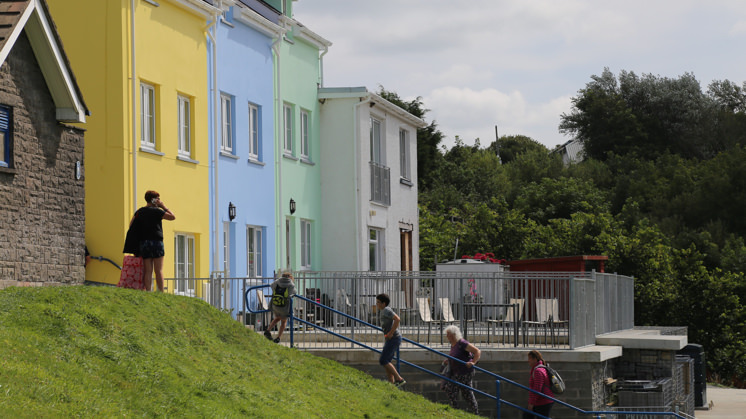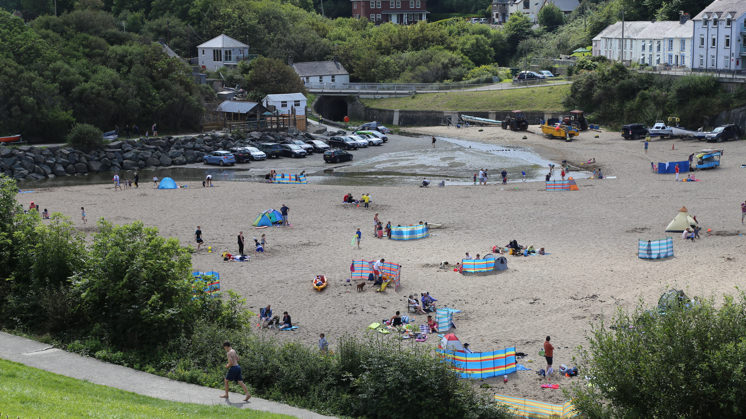Living without plastics
Aberporth, the world's first plastic-free village
Living without plastics is possible. At least it is in Aberporth, a small tourist village on the west coast of Wales. Its 1,100 inhabitants have reduced their consumption to make their village the world's first plastic-free community thanks to Plastic-free Aberporth, an initiative led by local resident and filmmaker Gail Tudor.




We live in a plastic world. Of the plastic existing today, 44% has been manufactured since 2000 and according to Greenpeace, by 2020 we will have 900% more plastic than we did in 1980. As if that was not enough, 40% of the plastic we produce is used for disposable packaging, and we recycle less than one fifth.
'Plastic-free Aberporth'
The inhabitants of Aberporth, on the west coast of Wales, have mobilised to live without disposable plastics. In just a few months they managed to reduce their consumption to zero thanks to their collective efforts and to Gail Tudor, a local filmmaker and creator of the Plastic-free Aberporth campaign.
This initiative was born in 2017 after she took a boat trip round the coastline of Britain to see the effects of plastic in the sea. The British filmmaker understood the seriousness of the problem, not only for the environment but also for our health: pieces of plastic can become detached from larger items and be consumed by fish and aquatic animals and then reach humans through the food chain. When she returned, she spoke with her neighbours with the aim of achieving a village free from non-biodegradable plastics.
Gail Tudor created the Plastic-free Aberporth Facebook page and invited all her neighbours to join her so that they could keep up with what was happening. Since then, they have posted messages, news, photos and videos related to the cause.
Easy tips for living without plastics
Local companies and Aberporth residents joined the campaign to live without plastics, which promotes actions as simple as:
- Replacing plastic straws with paper straws or biodegradable materials in shops, homes, pubs and restaurants.
- Using reusable coffee cups and bags. Avoiding buying products wrapped in plastic and to boost buying unpackaged food.
- Not buying bottled water. Instead it is recommended to refill reusable metal or plastic bottles with tap water.
- In shops, cafés and restaurants, replacing plastic cutlery with wooden cutlery, milk cartons with jars or glass bottles, and sauce sachets with bottles or biodegradable containers.
- Using cardboard containers for takeaway food.
Aberporth's commitment to living without plastics is so strong that some catering establishments encourage their customers to bring their own cups from home, and there are even inhabitants who use bamboo toothbrushes. Charity fund-raising activities have also been held to raise money for the project.
The campaign is also aimed at tourists visiting the town. They are asked to respect the village's anti-plastic policy, to recycle or take away the garbage they generate, and not to throw waste on the beach or alongside the road.
Why is 'Plastic-free Aberporth' an important example?
Aberporth's effort has earned it the title of the world's first plastic-free community. Gail Tudor, who founded the campaign, has found success in small details. As she herself acknowledges, "this initiative is about individuals reflecting on their actions to see where they can improve".
Without a doubt, this village is an example of how a society can take measures to reduce the consumption of disposable plastic. With specific objectives and public backing we still have time to stop the deterioration of the planet and recover our polluted seas.
8 million tons of plastic
de plástico anuales
annually from the coasts,
800 times the weight of
the Eiffel Tower.





